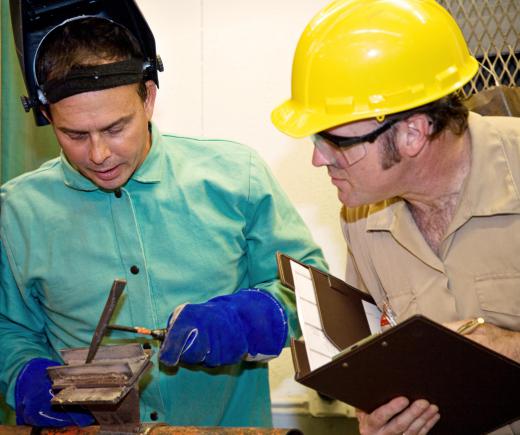Indirect labor is the work and costs of those who don’t directly produce or make anything. It is contrasted to direct labor, usually performed by those employees who make part or all of a product that can then be sold, installed or et cetera. This term is often used in manufacturing most, because it’s easy to see the dividing line between the workers who produce something, and those people who support production.
It shouldn’t be concluded that indirect labor is unimportant. In the average factory, it’s clearly vital that direct laborers be able to do their work and create a product. Yet a company would not run well without staffing a number of support positions.

Laborers won’t be particularly happy without someone there to work on payroll and to pay them, or without people who order products, keep machines running, create a weekly work schedule, and take care of employee conflicts or disputes. Depending on the company, people like supervisors, payroll experts, human resource specialists, salespeople, inventory experts, quality control inspectors, machinists, engineers and others need to contribute in the working environment too, in order to make the company run successfully.

One of the reasons that indirect labor is distinct from direct labor is because many companies calculate costs and expenditures by dividing the two. If a business is giving a bill to someone for a specific job, they may separate indirect and direct labor to show comparative costs. The business also benefits from having this information as it tries to cut costs. A company that seems to have disproportionate indirect and direct labor costs might make plans to trim costs by eliminating some of the money paid out in indirect labor.

Indirect labor costs can include more than differences between employees who support and produce. Part of successful scheduling is to make certain employees have little idle time. Even if an employee is principally involved in production of goods, poor scheduling or things like poor machine maintenance can lead to employee idle time. This is when employees are paid but aren’t producing any kind of work, and it is usually classed as indirect labor. Evaluating scheduling and making changes may reduce this cause and lead to producing employees being able to work more at production during each workday.

In any instance where a company considers how its money is being spent, a sense of balance is appropriate. Shaving too many indirect labor costs may cause producing employees to be less supported in the workplace. Disproportionately high indirect labor expenses may suggest that supportive employees are more valued than producers, which is equally problematic. Companies need to think hard on how to balance costs, allocating sufficient resources to all workers and departments.
